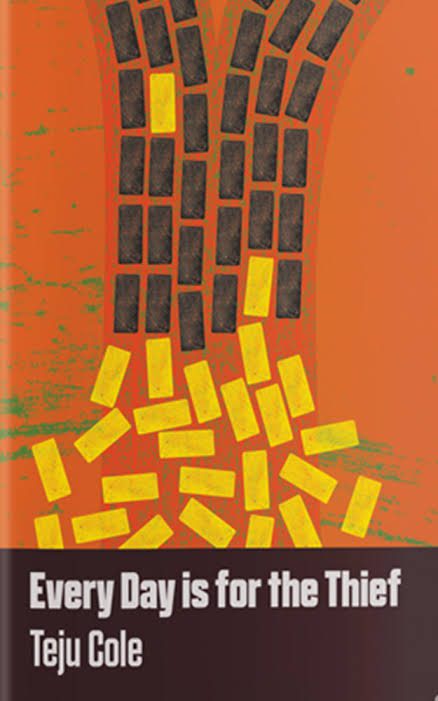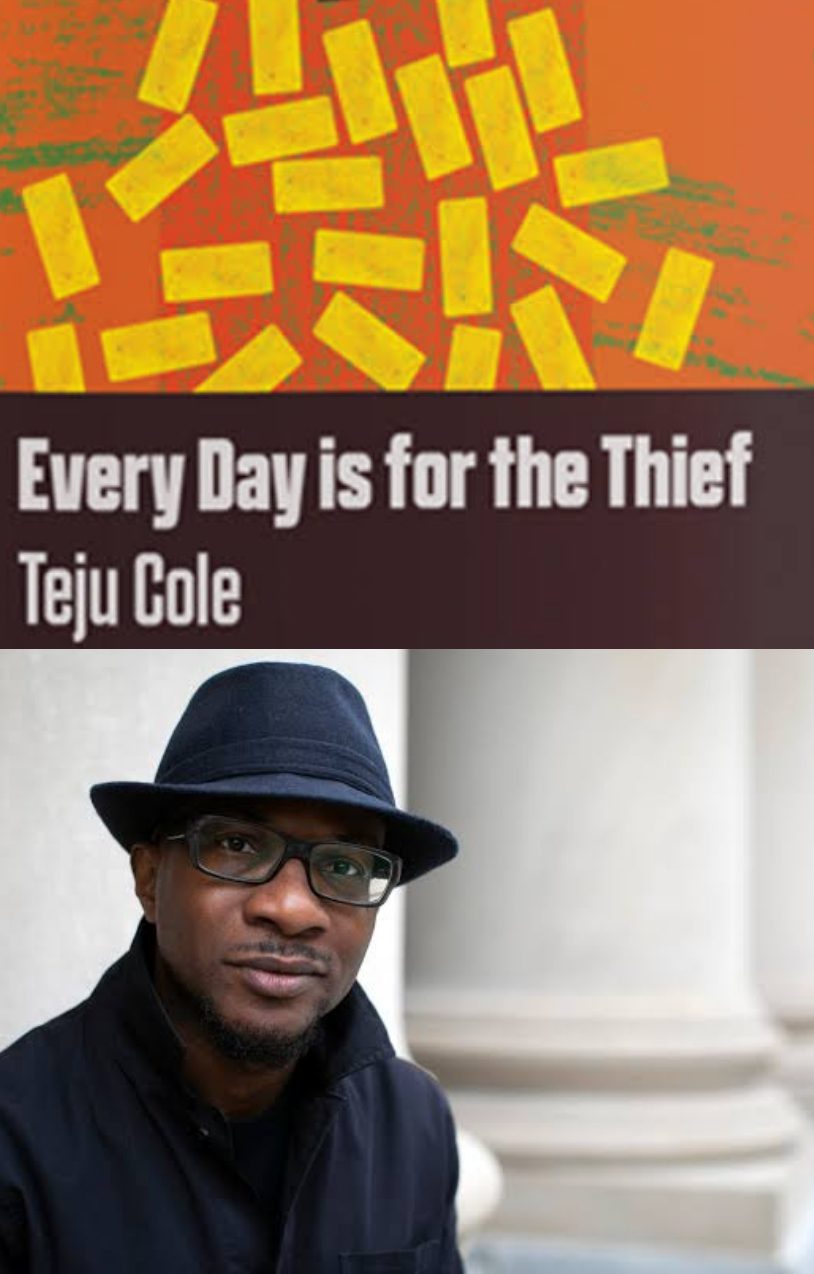The title of the novella, Every Day is for the Thief, resonates with a saying among the Yoruba South Western Nigeria: “ọjọ́ gbogbo ni t’olè, ọjọ kan ni t’olóhun” which literally translates to “everyday is for the thief, one day is for the owner”.
From this standpoint, Teju Cole demonstrates that the issue of corruption is paradoxical and does not follow the ordinary logic that occasionally there could be sanity. The title demonstrates that corruption has eaten deep into the fabric of the Nigerian state. In other words, the ills of corruption has gained currency and is the bane of the Nigerian society.
Plot Summary
An unnamed narrator starts a homeward journey back from the New York. The first dose of corruption the narrator encounters was at the Nigerian consulate in New York. The narrator frowns at the type of shady dealings rife in the consulate. Eventually, for him to meet up with his flight, he has to succumb to the corruption at the consulate.
On arrival to Nigeria, between the airport and his destination in Nigeria, varieties of corruption confront him. The narrator, later identified as Tokunbo (One who has returned from overseas) indirectly, reveals that every aspect of Nigeria is beset with corruption. His hosts (at Egba, Lagos) try to shield him from corruption on the streets which he refused due to his urge to experience it first-hand.

The entire story is about how corruption permeates the fabric of the society. In several instances, the narrator underscores the effect of corruption by chronicling the several aspects of life that have suffered neglect as a result of the corruption of the ruling class.
The plot of the novella captures the homeward journey of someone who had been away for so long. The narrator is disappointed and dejected as he moves about Lagos witnessing corruption and rot. By the time he wass through and ready to go back to where he came from, he left on a tone of scepticism on the seeming irredeemability of Nigeria.
Themes
Quest for roots and sense of longing: By deciding to come back home, the narrator demonstrates a sense of patriotism and his love for his motherland. It is like saying “there is no place like home” or in Yoruba, “ilé ni àbọ́ ìsinmi oko”.
Political and economic corruption: The novella universalises corruption and identifies it as a source of underdevelopment. For one thing, he believes corruption is capable of stunting the development of any country where it is deep-seated.
Jungle Justice: The example of the child burnt in Yaba on a flimsy excuse shows the prevalence of jungle justice and of course, how the society has degenerated and people no longer have respect for common humanity.
Anarchy: Teju Cole underscores the breakdown of law and order in several instances in the book. The title itself suggests to this effect that there’s breakdown of law and order.
Family Bond: The novella celebrates family bond and a sense of belonging in the way the narrator connects with his past.
Paradox of City Life: Lagos, the setting of the novella, is shown as a city of paradoxes where people suffer in the midst of plenty and where social dislocation reigns supreme.
 WHATSAPP: Click HERE to join the new Literature PADI WhatsApp group to receive latest updates on your phone and for further literary discussions!
WHATSAPP: Click HERE to join the new Literature PADI WhatsApp group to receive latest updates on your phone and for further literary discussions!



